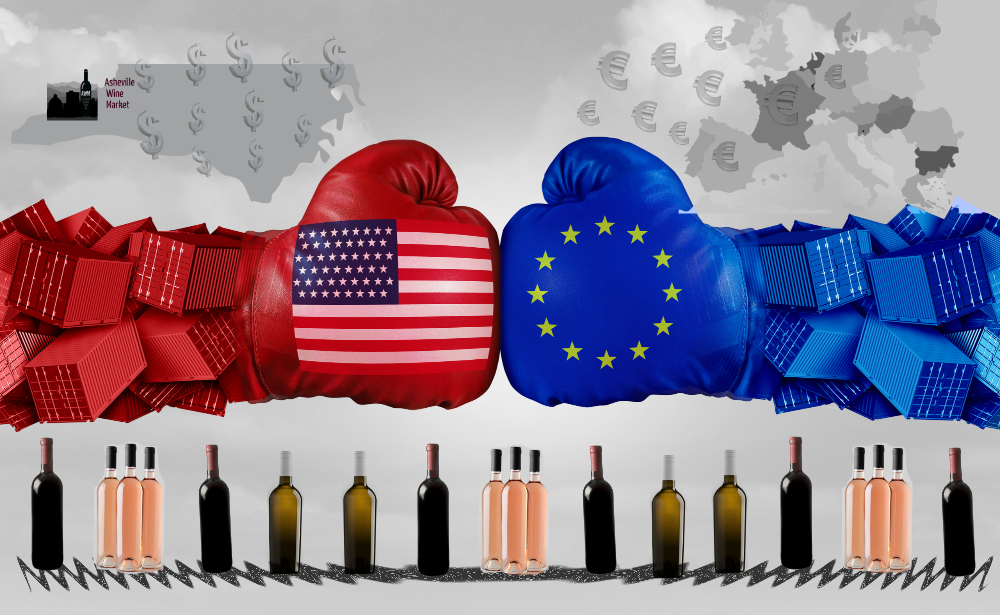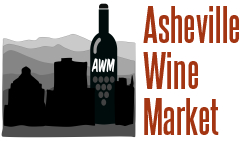
What the newly imposed tariffs will mean for us in Western North Carolina
If you’re wondering just what the heck airplanes have to do with wine, you’re not alone. We’re all scratching our heads over Washington’s latest decision to slap tariffs on a selection of European wines and food items.
The root of all this goes way back to 2004 when the U.S. and the E.U. started arguing about unfair loans and subsidies regarding their respective airline manufacturers: Boeing and Airbus. A couple of years later, Washington filed a complaint with the World Trade Organization accusing the E.U. of providing Airbus with unfair subsidies and loans, allowing Airbus to climb ahead of Boeing in development and research. The E.U. immediately filed a similar complaint against Boeing, accusing Washington of similar unfair practices.
After years of back and forth, the W.T.O. eventually ruled against both complaints. At that time, the U.S. and the E.U. started to lobby for sanctions against each other in an attempt to recoup perceived losses suffered by their respective airline industries.
Skip ahead to October 2, 2019, the W.T.O. awarded the U.S. with permission to impose sanctions against the E.U. to the tune of $7.5 billion in tariffs. These quickly went into effect, beginning this past Friday. The W.T.O. will make another ruling in the spring to determine whether or not the E.U. can impose similar tariffs against the U.S. — it’s generally believed the E.U. will also receive permission to levy similar tariffs.
Starting Friday, Washington imposed a 25% tariff on wines under 14% from France, Spain, and Germany, along with similar tariffs on French, Spanish and Italian cheeses and olive oil. Remarkably, Washington only imposed a 10% tariff on airline parts?!
Of course, this all begs the question: Why are wine and cheese involved in a dispute concerning airplane manufacturing? Simply put, the tariffs imposed on European wine and cheese will have a far-ranging and devastating effect on Europe as a whole. The effect will dramatically trickle down to the little guy in all of those European countries — the small independent vigneron, cheesemaker, and farmer. Washington hopes this will put the right amount of pressure on the E.U. ahead of the W.T.O. decision next year regarding Boeing.
Sadly, this will also have a significant effect on both businesses and consumers here in the U.S. As with our European counterparts, the most devastating effect will be felt by the small and independent businesses in the import sector.
So, how does all of this affect us in Western North Carolina and more specifically here at the Asheville Wine Market? The good news is that we’ll have plenty of selections available that won’t be affected by the tariffs. In Europe, Italian and Portuguese wines are not affected at all and in France, Spain, and Germany, the tariff only affects wines under 14%.
It’s not going to be an easy road when it comes to wines under 14% from France, Spain, and Germany; however, I made a lot of plans ahead of the tariffs and I was able to buy into a significant amount of my personally selected wines at pre-tariff prices. My hope, of course, is that I have secured enough wine to outlast the duration of the tariffs.
In order to best buffer any price increases to my customers, in addition to my personal selections, I will be focusing on suppliers and importers that equitably pitch in to absorb the cost increases for affected wines. If the vigneron, importer, distributor, retailer, and the consumer can equally and fairly share the burden, it will greatly help to keep prices in line without any one part of the chain suffering more than others.
With any luck, the U.S. and the E.U.will work this all out in a reasonable time!
